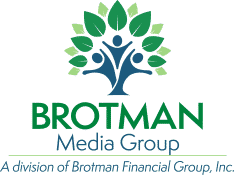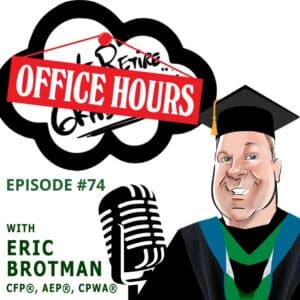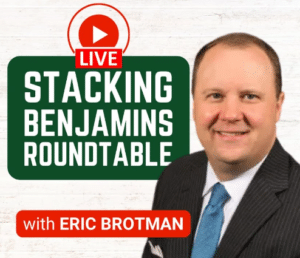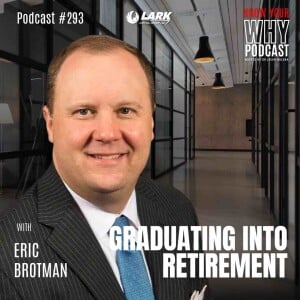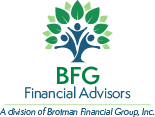Eric Brotman: [00:00:00] Welcome to Don’t Retire… graduate! The podcast that asks you what you want to be when you grow up so you can graduate into retirement with purpose and passion. I’m your host in valedictorian, Eric Brotman. Welcome to Office Hours where we answer listeners questions about personal finance, retirement readiness, and more.
We received a question from Olivia who asked, What should I do with my tax refund? And Olivia, this is a great time to be talking about tax season. Everyone loves tax. Said no one ever. Tax refunds are a, a product of having overpaid your taxes. So while it sometimes feels good, when you file your tax returns and you get a little deposit back from your state or municipality, or from the federal government, what you’ve really done is you’ve given the government an interest free loan for a period of time, which could be as long as 15 months.
So if your first paycheck in January of 2022, for example, you overpaid your taxes a little bit. You’re now [00:01:00] waiting on a refund in April of 2023 for something you prepaid 15 months ago. Now, on the one hand, having a tax refund feels good. It feels like found money. It feels like forced savings. It’s definitely not something to strive for.
And the reason you don’t want to strive for it is because you could have used that money all along that period of time to either grow some wealth or pay some debt down or, or have other obligations settled. So I think it’s important to to recognize that no one wants to have a shortfall. It’s scary to owe the government money and to to see something that’s got a negative number or red ink at the bottom of your tax filing is no fun.
And to write a check to the US Treasury is no fun. I get it, but we’re all paying the same amount of taxes no matter what. Your tax return is just a way for you to capture what’s already been paid and what is still due. The ideal is to have that number be as close to zero at the end of the year as possible.
[00:02:00] So if you get a hundred dollars refund or you have a hundred dollars shortfall, no big deal. But we sometimes see people who get five-figure refunds, and what that means is that they literally have been overpaying all year and potentially paying interest on debt or other things. When they could have had those paid down sooner.
So the first thing I would say you should do with the tax refund is try to avoid one. And I know that’s counterintuitive. I know for some people to get that one or two or $3,000 check in April or May feels really, really good. I get it. So if you are one of those folks who is receiving a tax refund, either currently or shortly what do you do with it?
Well, if you have an emergency fund, if you have a sleep at night fund and it’s less than three to six months of your bills, I’d put your tax refund directly in the bank and not think about it. It would be it would be foolish, I think, to spend it or to apply it to anything if you are one crisis away from dipping back into Visa.
So first thing is the emergency fund. The second thing, if you’ve already got a nice cash [00:03:00] cushion in the bank and you have any personal debt outstanding, I would give a serious thought to putting a tax refund toward that personal debt. And I would choose a debt that has the highest interest rate. or a debt that you could pay in full to eliminate that payment, whichever one works best for you.
And so those are the first two things I would think about. Now, if you’re one of those fortunate people who has a, has built a savings account and an emergency fund, and you have already paid off any personal debt, and I don’t mean mortgages or favorable debt, I mean unfavorable debt, then your tax refund can be handled one of two ways.
One, it can be invested. It can go into your brokerage account. It can be used for any of your priorities, whether it’s college savings for your kids or retirement for you. It can also be used for fun, quite frankly, if you’ve lived on it or lived without it all year, and you don’t have debt, and you don’t have things that are creating an issue and you want to take it and enjoy a, a long weekend, I say do it. I mean, that’s certainly something you could enjoy yourself [00:04:00] with as well. So a, a lot of it depends on your personal situation. My first admonition though is try to avoid tax refunds. If you get a big tax refund this year with your 2022 tax returns. What it means is you should go into hr, assuming you’re employed, and a W two employee.
And adjust your exemptions or talk to your CPA or tax preparer about adjusting your ex exemptions so that less is withheld from each paycheck. It means that your refund, all things being similar a year from now, your refund next year would be smaller, but it also means your paycheck every week or every two weeks or twice a month or whatever it is, would be bigger because you would wind up not paying as much to the government that you didn’t owe them in the first place.
Every paycheck. And if your paycheck’s a little larger, maybe that lets you put a little extra money into the 401k, or maybe it lets you fund your health savings account a little more, or maybe it just gives you a little extra breathing room at the end of the month after you’ve paid bills. So I hope that helps you.
Rule number one, [00:05:00] try to avoid a tax refund. Rule number two, if you are getting a tax refund, put it to work for you if you have jobs that need to get done, savings, debt investment, and so forth. And number three, if you don’t have any of those things applying enjoy it. You know, you, you worked all year.
You paid money in, it’s now sitting there. And all of us could use a, a day off and some r and r, and so maybe that is how you use it. Olivia, I hope that helped you. And I thank you for your question. It’s timely and it’s something we we grapple with every year. So if you’d like to send us a question, which we might answer in a future episode of Office Hours, post it on our Facebook page, or tweet us at brotman Planning.
I’d like to thank all of you for listening and watching today. We’d love to hear from you, so send us a message or leave comments at don’t retire graduate.com or on social media or leave reviews and ratings on your favorite podcast platform. If you’ve enjoyed the show, share it with friends and family.
Don’t keep it a secret. Let them join you on your path to financial independence. I thank you again for coming to Office Hours. Be sure to tune in every Thursday for [00:06:00] new content. For now, this is your host, Eric Brotman, reminding you don’t retire, graduate.
Narrator: Securities offered through Kestra Investment Services, LLC. (Kestra IS) Member Finra, SIPC. Investment advisory Services offered through Kestra Advisory Services, LLC. (Kestra AS) an affiliate of Kestra IS. Kestra IS or Kestra AS are not affiliated with Brotman Financial or any other entity discussed.
